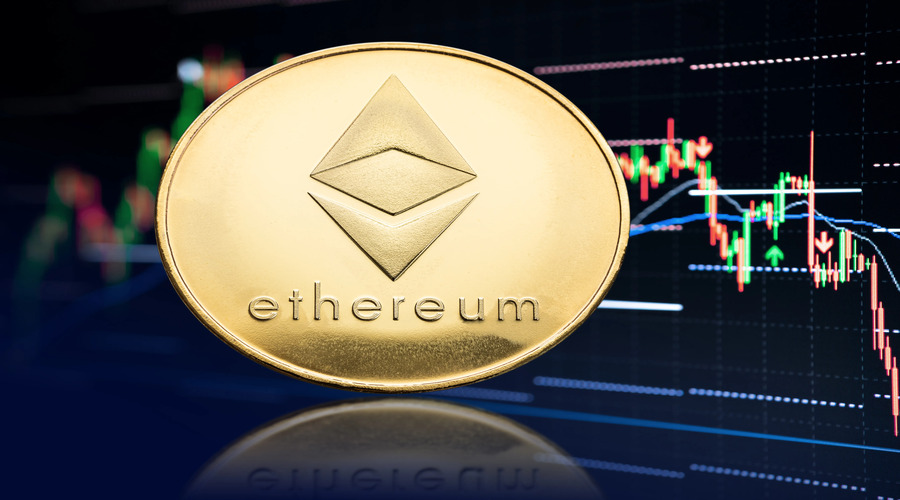Introduction
Ethereum-based prediction markets are a growing trend in the financial industry, allowing individuals to predict the outcome of future events and earn profits if their predictions are accurate. These markets are built on blockchain technology, which provides a secure and transparent way to trade prediction tokens. In this article, we’ll explore the potential impact of Ethereum-based prediction markets on the financial industry.
What are Ethereum-based prediction markets?
Ethereum-based prediction markets are decentralized markets where users can buy and sell prediction tokens, which represent the outcome of a future event. For example, a prediction market might allow users to buy tokens that represent the outcome of a presidential election or the price of a particular commodity.
Users can profit from these prediction markets by buying tokens at a low price and selling them at a higher price if their prediction comes true. The market price of a prediction token reflects the probability of a particular outcome, as perceived by the market.
The potential benefits of Ethereum-based prediction markets
Ethereum-based prediction markets offer several potential benefits for the financial industry. One of the key benefits is that they can provide a more accurate prediction of future events than traditional methods. This is because prediction markets aggregate the knowledge and opinions of a large number of individuals, providing a more comprehensive and nuanced view of the future.
Another potential benefit is that prediction markets can provide a new way for investors to hedge against future events. For example, if an investor is concerned about the outcome of a particular election, they can buy prediction tokens that represent the opposite outcome. This can help to reduce their risk and protect their portfolio.
Challenges facing Ethereum-based prediction markets
While Ethereum-based prediction markets offer several potential benefits, there are also challenges that must be overcome. One of the main challenges is that these markets can be vulnerable to manipulation. For example, a small group of individuals with a large amount of capital could potentially manipulate the market price of a prediction token.
Another challenge is that these markets may not be legal in all jurisdictions. Some governments may view prediction markets as a form of gambling and may prohibit them. This could limit the growth of these markets in certain regions.
Examples of Ethereum-based prediction markets
There are several examples of Ethereum-based prediction markets that are currently in operation. One of the most well-known is Augur, which allows users to create and trade prediction tokens on a wide range of events, from political elections to sporting events.
Another example is Gnosis, which is focused on providing prediction markets for specific industries, such as finance and healthcare. Gnosis is also exploring the use of prediction markets for decentralized governance, allowing users to vote on proposals using prediction tokens.
The potential impact of Ethereum-based prediction markets on the financial industry
Ethereum-based prediction markets have the potential to disrupt the financial industry in several ways. One of the most significant impacts could be on the insurance industry. Prediction markets could provide a more accurate way to assess risk and price insurance policies, reducing costs for consumers and insurers.
Another potential impact could be on the investment industry. Prediction markets could provide a new way for investors to hedge against risk and manage their portfolios. They could also provide a more accurate way to predict the performance of individual assets, such as stocks or commodities.
Ethereum-based prediction markets and decentralized finance (DeFi)
Ethereum-based prediction markets are a part of the wider decentralized finance (DeFi) movement, which aims to create a more open and accessible financial system. DeFi applications are built on blockchain technology and provide an alternative to traditional financial services.
One of the key features of DeFi is the ability to create and trade digital assets, such as prediction tokens. These assets are created and traded on decentralized exchanges (DEXs), which operate without the need for intermediaries like banks or brokerages.
Prediction markets are an important part of the DeFi ecosystem because they allow individuals to create and trade prediction tokens without the need for a centralized authority. This provides greater transparency and security for users, as well as more control over their investments.
Use cases for Ethereum-based prediction markets
Ethereum-based prediction markets have a wide range of potential use cases beyond the financial industry. One potential use case is in the field of governance, where prediction markets could be used to inform decision-making processes.
For example, a decentralized organization could use prediction markets to make decisions about which proposals to fund or which candidates to elect to leadership positions. This could provide a more democratic and transparent decision-making process, as well as a way to aggregate the knowledge and opinions of a large group of individuals.
Another potential use case is in the field of sports and entertainment. Prediction markets could be used to create new forms of fan engagement, such as betting on the outcome of a sports game or the winner of a reality TV show.
The future of Ethereum-based prediction markets
The future of Ethereum-based prediction markets is bright, as these markets have the potential to disrupt and transform a wide range of industries. As blockchain technology and decentralized finance continue to grow and evolve, we can expect to see even greater innovation and adoption of prediction markets.
One potential area of growth is in the use of prediction markets for environmental and social impact. For example, prediction markets could be used to predict the outcome of climate change policies or the success of sustainable development initiatives.
Conclusion
Overall, Ethereum-based prediction markets are an exciting development in the world of blockchain and finance. While there are challenges to overcome, the potential benefits are significant, and we can expect to see continued growth and innovation in this space in the years to come.
